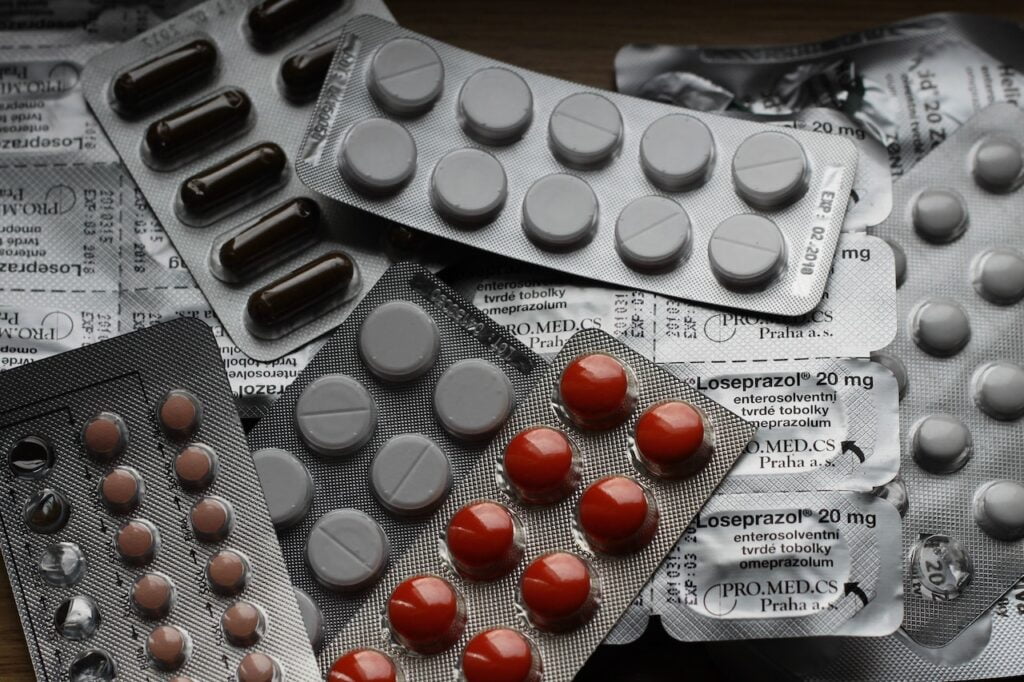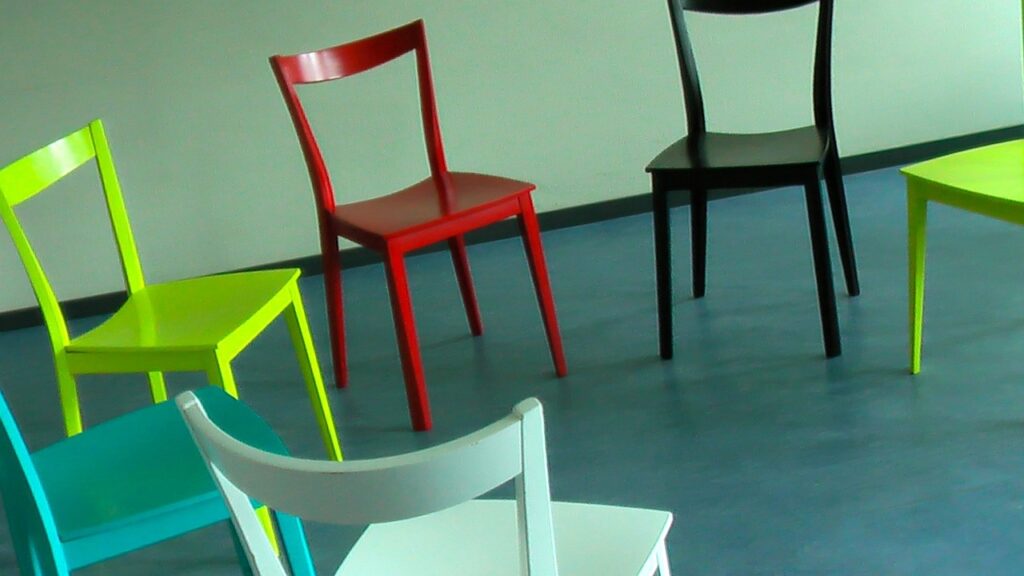Drug and Alcohol Rehab in West Yorkshire
Quick Links for help with addiction in West Yorkshire
- Inpatient Treatment at a Drug and Alcohol Rehab in West Yorkshire
- Therapeutic Methods at a Drug and Alcohol Rehab in West Yorkshire
- Getting Help Today in West Yorkshire
If you are ready to make a change, drug & alcohol rehab in West Yorkshire is the best option for you to go about treating your addictive tendencies.
In residential drug & alcohol rehab in West Yorkshire, you are going to take yourself away from the temptations.
You aren’t going to be around people who are going to try and persuade you to use drugs or alcohol; instead, you are going to be around those who will empower you and teach you that you don’t need to abuse these substances to live a happy life.
Get the help you need to beat addiction at a drug and alcohol rehab in West Yorkshire by calling our team today on 0800 088 66 86
Drug & Alcohol Statistics in West Yorkshire

In only half a decade, West Yorkshire has seen a 25% rise in drug poisoning deaths, a harrowing trend highlighting the scale of addiction-related problems in the area.
In Leeds, the region’s administrative centre, instances of drug-related mortality have been increasing since 2012, with Covid-19 only exacerbating the already precarious situation.
While numerous West Yorkshire residents require treatment for drug addiction, just as many are battling alcohol use disorder and the various health impacts preventing long-term recovery.
Sadly, this is not surprising given the prevalence of binge drinking throughout the United Kingdom.
According to the Local Alcohol Profiles for England, the ceremonial county has suffered rising cases of alcohol-related deaths and hospital admissions due to drink-related illnesses. Of the 5 boroughs of West Yorkshire, Leeds suffered the highest rate of alcohol-related mortality in 2021 at 289, followed by Bradford (207), Kirklees (176), Wakefield (164), and Calderdale (93), respectively.
Within these statistics are countless families who have suffered from the loss of loved ones who could have benefited from a drug and alcohol rehab in West Yorkshire.
Below, we provide some statistics about alcohol and drug use in West Yorkshire:
| Drug and Alcohol Statistics in West Yorkshire (March 2020-April 2021) | Data | |
|
8,593 | |
| Number of non-opiate-only users in West Yorkshire | 1,461 | |
| Number of non-opiate and alcohol users in West Yorkshire | 1,197 | |
| Number of alcohol users in treatment services | 4,254 |
Get the help you need to beat addiction at a drug and alcohol rehab in West Yorkshire by calling our team today on 0800 088 66 86
What is Drug and Alcohol Addiction?
While it’s possible to abuse substances without harbouring the condition known as Substance Use Disorder (SUD), many develop a physical and psychological dependence on certain substances.
Physical dependence occurs with physically addictive substances, such as alcohol, benzodiazepines, ketamine and heroin. This is because the substances have caused a physical need within the body.
In the case of non-physically dependent substances, such as cocaine dependence, cannabis use disorder, or behavioural addictions (i.e gambling addiction), only a psychological addiction will occour.
Addiction itself can occur for a multitude of reasons, including genetic predispositions, environmental factors, co-occurring mental disorders, and the existence of trauma.
According to the NESARC data, 28.6% of people already holding a current alcohol use disorder diagnosis had at least one personality disorder like bipolar disorder.
Nevertheless, many victims of this cruel disease undergo similar changes in the brain specifically in the reward and pleasure centres.
These neurological processes are described in the Diagnostic and Statistical Manual of Mental Disorders (DSM-5), an authority describing addiction as a biological condition characterised by periodical relapse.
When someone misuses drugs or drinks uncontrollably, the intense stimulation of the brain’s reward system causes them to crave the pleasure provided by the substance- at least initially. As they consume more frequently, their tolerance will build to a point of diminishing returns.
This is because the brain has adapted to the mental effects of the substance, reducing its release of neurotransmitters accordingly. As this continues, individuals will no longer be consuming substances to feel an intense high, but to regain a sense of normality.
This causes addicted individuals to feel a sense of desperation and anxiety if they cannot obtain their drug of choice: making it incredibly difficult to quit alone.
Without the help of drug and alcohol rehab in West Yorkshire, SUD victims experience harsh mental, emotional, and physical side effects (known as withdrawal symptoms.)
Get the help you need to beat addiction at a drug and alcohol rehab in West Yorkshire by calling our team today on 0800 088 66 86
Physical and Psychological Symptoms of Substance Use Disorder
When someone initially takes a drug or consumes an alcoholic drink, they’ll notice feelings of relaxation, euphoria, or increased confidence.
However, with continuous use, it soon becomes obvious that physical and psychological symptoms have manifested: including mood swings, increased temper, inability to concentrate, weight gain/loss, insomnia, and many more.
They might realise that pathological drug or alcohol use is causing their health to decline and try to quit at home, but other symptoms arise in these scenarios.
Upon the abrupt discontinuation of a substance, individuals will experience unpleasant psychological and physical reactions known as withdrawal.
Some physical side effects commonly associated with drug and alcohol withdrawal include chills or shivering, nausea, vomiting, muscle pain, and flu-like symptoms in the case of opioid addiction.
Mentally, symptoms can range from mild to severe and include insomnia, irritability, paranoia, hallucinations, anxiety, and chronic depression.
Sufferers can also experience fatal seizures if their condition is severe enough, and it’s for these reasons that help should be sought at a drug and alcohol rehab in West Yorkshire.
You’ll be offered medical detox options, along with further residential rehab or outpatient care using therapeutic methods to ensure that you maintain your sobriety.
Alcohol addiction is unfortunately common, with a study by Robin Room, Thomas Babor and Jürgen Rehm revealing that ‘4% of the global burden of disease is attributable to alcohol’, accounting for almost as much death and disability as tobacco and high blood pressure (hypertension) globally.
In the case of severe alcohol withdrawal symptoms, substance Librium, also known as Chlordiazepoxide, is extremely effective at reducing the symptoms of alcohol withdrawal syndrome, including delirium tremens, Wernicke’s encephalopathy and alcohol seizures.
Another medication used to stop drinking is the drug Acamprosate (Campral®), which helps rebalance the chemicals in the brain that have been damaged by alcohol.
Alcoholism can also cause anxiety and depression, which means you might be able to get prescribed medications such as an antidepressant like nefazodone, desipramine, or imipramine.
The opioid antagonist drug Naltrexone can also be helpful in cutting alcohol out of your life as it decreases the alcohol you consume.
Meanwhile, heroin detox is extremely important to ensure a safe recovery, not just for heroin addiction but also for any opioid use disorder. Medications like methadone and buprenorphine are widely used to make heroin withdrawal a much safer process.
Although non-physically addictive substances can cause some withdrawal symptoms, they will not require a detox. This includes both cocaine addiction and crack cocaine misuse.
If you go on to have CBT therapy for alcohol addiction, a report has proved that the success rate is 83.87%. Therapy after treatment is therefore highly recommended.
Get the help you need to beat addiction at a drug and alcohol rehab in West Yorkshire by calling our team today on 0800 088 66 86
Outpatient Treatment at a Public Rehab in West Yorkshire

While some outpatient programmes are intensive: involving medical detox and individual therapy sessions every day, others take a more casual approach: requiring patients to attend a few hours of treatment each week.
These treatment plans are often arranged via The NHS: offering affordable, flexible care with the help of medical professionals.
While this means that those who cannot afford residential rehab can still access treatment, individuals with milder addictions can also benefit from outpatient flexibility.
They’ll be able to continue working through the recovery process, seeing loved ones, and pursuing the activities that interest them.
However, returning home after therapy sessions can leave patients vulnerable to relapse, as they may live in a problematic environment or encounter temptations.
Moreover, outpatient rehab clinics are subject to prolonged waiting lists, high demand, and understaffing issues.
Other organisations to consider in West Yorkshire
Below is a list of other organisations that offer free support and advice for addiction in and around West Yorkshire, including several provided by the National Health Service or an associated NHS Foundation Trust:
1. Turning Point – Castleford
Address: 4-6 Wesley St, Castleford WF10 1AE
Telephone: 0300 123 1912
Website: http://wellbeing.turning-point.co.uk/wakefield/hubs/castleford-hub/
2. C G L Change Grow Live
Address: 73A Great George St, Leeds LS1 3BR
Telephone: 0113 24 59445
Website: https://www.changegrowlive.org/
3. CAMHS – Wakefield
Address: Unit 2, Flemming Court, Castleford WF10 5HW
Telephone: 01977 735865
Website: https://www.southwestyorkshire.nhs.uk/services/camhs-wakefield/
You can reach out to a number of remote services, such as the National Institute for Health and Care Excellence (NICE), Turning Point, We Are With You, Change Grow Live and the National Association for Children of Alcoholics.
If you are suffering from too many temptations and triggers in your home life, you may also be able to gain temporary residence in a sober living house.
You can also reach out to a number of helplines, including Mind UK, YoungMinds, Rethink Mental Illness, Samaritans and Papyrus.
There are also various mutual support groups available throughout West Yorkshire which are often free to attend, including SMART Recovery, Alcoholics Anonymous West Yorkshire, Narcotics Anonymous West Yorkshire and Cocaine Anonymous, as well as offshoot groups like Al-Anon Family Group Meetings and Alateen.
These 12-step groups in particular encourage individuals to lean on a higher power when addiction seems overwhelming, which can be extremely helpful.
Get the help you need to beat addiction at a drug and alcohol rehab in West Yorkshire by calling our team today on 0800 088 66 86
Inpatient Treatment at a Drug and Alcohol Rehab in West Yorkshire

Image above: Two women talking at a rehab in West Yorkshire
Those with a more severe substance abuse issues may opt for residential treatment at a private drug and alcohol rehab in West Yorkshire to avoid waiting times and access bespoke care.
Upon arrival, a formal psychiatric assessment will be conducted by an attendant psychiatrist and rehab specialists to create a person-centred care plan for the individual, one that will address their specific needs.
There are many different forms of assessments for this purpose, including the CAGE Questionnaire. ASAM (American Society of Addiction Medicine) Criteria and Dimensions, the AUDIT (Alcohol Use Disorders Identification Test) and the Diagnostic and Statistical Manual of Mental Disorders, 5th Edition (DSM-5).
After the assessment, the patient will then opt to stay at an inpatient rehab for either 30, 60, 90, or 120 days: with the opportunity to extend their recovery journey if necessary.
Unlike outpatients, inpatients at a drug and alcohol rehab in West Yorkshire will eat, sleep, and undergo personalised therapy without leaving the clinic of their choice.
An inpatient treatment programme will often include medically assisted detox, behavioural interventions, and an aftercare programme.
As personalised treatment is a common feature of inpatient care, patients suffering from co-occurring disorders must treat their dual diagnosis at one of these residential practices.
Mental illnesses that are common co-occurring disorders of addiction include:
- Schizophrenia
- Bipolar Disorder
- Eating disorders
- Depression
- Generalised Anxiety Disorder (GAD)
- Borderline Personality Disorder (BPD)
- Obsessive Compulsive Disorder (OCD)
- Attention Deficit Hyperactivity Disorder (ADHD)
- Post Traumatic Stress Disorder (PTSD)
- Codependency
Physical complications commonly associated with addiction include:
- Liver failure
- Hepatitis
- Heart issues
- Blood pressure issues
- Brain damage
- Gastrointestinal issues
At a drug and alcohol rehab in West Yorkshire, patients are seen by trained, multi-disciplinary staff ready to personalise their care.
Even if someone doesn’t suffer from mental health issues, there are myriad reasons for choosing a residential recovery programme.
Individuals addicted to both drugs and alcohol, for example, will require on-site detoxifications in order to ensure that they recover safely.
Get the help you need to beat addiction at a drug and alcohol rehab in West Yorkshire by calling our team today on 0800 088 66 86
Therapeutic Methods at a Drug and Alcohol Rehab in West Yorkshire

Types of therapy in West Yorkshire
Below, we outline the types of therapy you can benefit from at drug and alcohol rehab in West Yorkshire:
1. Cognitive Behavioural Therapy (CBT)
The infamous CBT is based on the premise that addictive behaviours are exaggerated by a collection of deeply-ingrained thought patterns.
Cognitive distortions such as overgeneralizing, personalizing situations, or catastrophising can cause errors in logic and affect someone’s interpretation of themselves, the world around them, or a specific situation.
During CBT workshops, therapists teach their patients how to deal with potentially problematic situations in the future, and how to identify negative thought patterns in light of their SUD.
A course in Cognitive Behavioural Therapy for substance addiction entails hour-long classes that run for the duration of a patient’s rehab programme and beyond.
During this time, participants can build rapport with their CBT therapist as they work together to decide future goals and effective ways they can modify treatment.
2. Dialectical Behavioural Therapy (DBT)
Though widely regarded as an extension of CBT, Dialectical Behavioural Therapy (DBT) focuses more on helping patients to live in the present moment: accepting their experiences while looking towards healthy self-improvement.
At a drug and alcohol rehab in West Yorkshire, DBT workshops utilise mindfulness practice, emotional regulation, interpersonal effectiveness, and distress tolerance.
These guiding principles help subjects build the coping mechanisms needed to handle stressful situations in the post-rehab world and accept difficult feelings as they arise.
As such, DBT is usually the therapy of choice in drug rehab or alcohol rehab for patients prone to intense emotional episodes, or past trauma.
While accepting themselves and their condition, patients are also encouraged to change their surroundings and behaviour to help aid relapse prevention. This could mean removing relapse triggers from their daily lives or seeking supportive groups such as Alcoholics Anonymous.
3. Family Therapy (FT)
Although the above-mentioned individual therapies are key to recovery, Family Therapy (FT) is often the missing piece of the puzzle regarding the journey to recovery.
Groups often enter Family Therapy with pre-existing conflicts and communication barriers impeding their ability to heal, making it difficult to process their loved one’s substance addiction.
Through specialised therapy tailored to their unique family dynamics, participants can set realistic goals and accomplish them together.
Many of these goals will centre around re-establishing broken boundaries, communicating honestly with one another, and reducing enabling behaviours.
Many Concerned Significant Others (CSOs) don’t realise that their actions (or inaction) can lead to their loved one’s drug or alcohol use; for example, keeping their concerns bottled up or letting them explode in a confrontation.
Family Therapy teaches CSOs how to avoid the inhibitors of their loved one’s recovery, while also making sure they practice self-care and partake in their healing journey.
4. Holistic Therapy (HT)
Also known as body-centred psychotherapy or alternative therapy, Holistic Therapies (HT) help patients heal from the emotional, physical, and spiritual impacts of their addiction.
At a drug and alcohol rehab in West Yorkshire, HT programmes are used in conjunction with behavioural interventions to help people reintroduce healthier hobbies and habits into their lives.
Depending on the patient’s interests and mental and physical health, HT therapists will suggest a range of mind-body, somatic, or spiritual therapies.
These can include everything from music therapy, art therapy, mindfulness and meditation to yoga, acupuncture, equine therapy and drama therapy.
These are just a few of the various talking therapies and psychiatric treatments you may experience whilst at rehab in West Yorkshire, which can also include:
- Group Therapy and Group Psychotherapy
- Individual Therapy
- Motivational Enhancement Therapy
- Eye Movement Desensitisation and Reprocessing
- TSF (Twelve-Step Facilitation Therapy)
- Acceptance and Commitment Therapy
- Contingency Management
- Co-Dependency Treatment
- Brief Interventions
- Motivational Interviewing and other motivational therapies
- Rational Emotive Behaviour Therapy
Get the help you need to beat addiction at a drug and alcohol rehab in West Yorkshire by calling our team today on 0800 088 66 86
Don’t Try to Fight it Alone
You have realised you need help, and that you need to stop abusing drugs and alcohol, you don’t want to go at this fight on your own.
All of these factors working together, create a conducive environment to help you succeed on your journey towards getting clean and living a drug and alcohol-free life.
We’re here to help you find the best support and treatments available to fight your addiction. The time to make a change is now. You can fill out the short form below to get more information.
It might take between 6 months to 5 years or more to reach abstinence and get over your addiction completely, but it is worth it for a lifetime in recovery.
It should not be seen as a sign of weakness if you relapse as recovery takes time. Relapsing is common and occurs between 40% to 60% of adults trying to recover.
Get the help you need to beat addiction at a drug and alcohol rehab in West Yorkshire by calling our team today on 0800 088 66 86
Getting Help Today in West Yorkshire

Image above: Boy in therapy in West Yorkshire
If you would like to control your emotions and hence your addiction in West Yorkshire, contact Rehab Recovery today at 0800 088 66 86.
Alternatively, contact us through this website for a free and no-pressure assessment. All drug and alcohol rehabs must be registered and audited by the Care Quality Commission (CQC).
Many of our team have defeated their addiction and so your call for help will be met with utter understanding and compassion.


